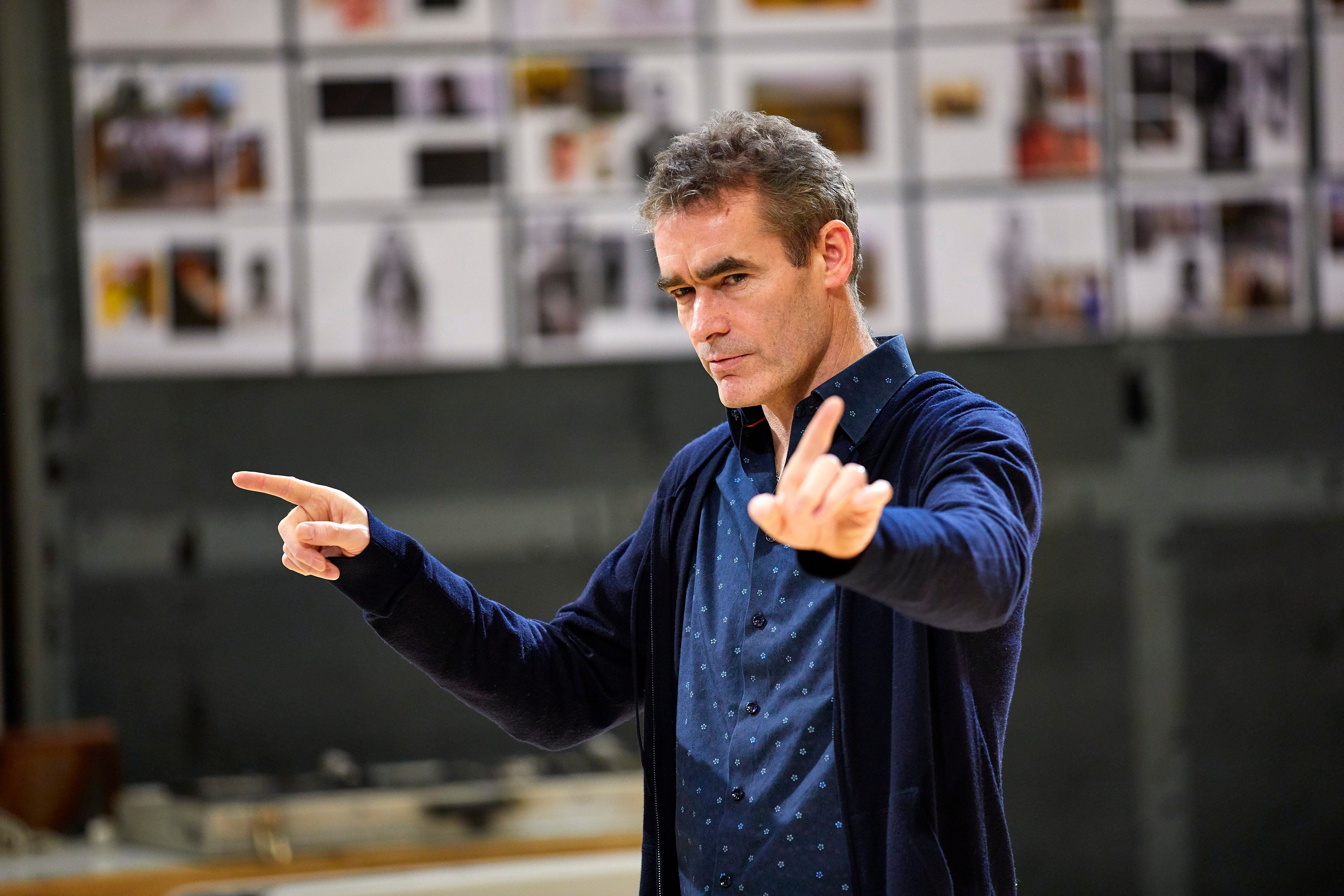National Theatre appoints Indhu Rubasingham as first female director
She succeeds Rufus Norris, under whose leadership the theatre enjoyed its biggest audiences

Your support helps us to tell the story
From reproductive rights to climate change to Big Tech, The Independent is on the ground when the story is developing. Whether it's investigating the financials of Elon Musk's pro-Trump PAC or producing our latest documentary, 'The A Word', which shines a light on the American women fighting for reproductive rights, we know how important it is to parse out the facts from the messaging.
At such a critical moment in US history, we need reporters on the ground. Your donation allows us to keep sending journalists to speak to both sides of the story.
The Independent is trusted by Americans across the entire political spectrum. And unlike many other quality news outlets, we choose not to lock Americans out of our reporting and analysis with paywalls. We believe quality journalism should be available to everyone, paid for by those who can afford it.
Your support makes all the difference.The National Theatre has appointed Indhu Rubasingham as its first female director, succeeding Rufus Norris who resigned from the prestigious job in June.
Rubasingham, 53, will take over from Norris, 58, as the theatre’s artistic director and joint chief executive, sharing the role with executive director Kate Varah as part of a co-leadership model.
Formerly the artistic director of the Kiln Theatre, Rubasingham, who was considered a frontrunner for the job, said: “It’s a huge honour to be appointed director of the National Theatre – for me, this is the best job in the world.
“The National has played an important part in my life – from tentative steps as a teenage theatregoer, to later as a theatre-maker, and to have the opportunity to play a role in its history is an incredible privilege and responsibility.
“Theatre has a transformative power – the ability to bring people together through shared experience and storytelling, and nowhere more so than the National,” she continued. “I’ve been fortunate to have directed on the National Theatre’s stages and to have witnessed firsthand the commitment, collaboration, brilliance and pride of those who bring the magic to the building, both on stage and off.”

Rubasingham will join the National as director designate in Spring 2024, working alongside Norris in his final year as artistic director.
“Indhu is an exceptional artist who I respect and admire hugely, and I am so pleased that she will become the next director when I step down in 2025,” Norris said.
He added: “She has run Kiln Theatre expertly for over a decade and I know this experience will be invaluable as she moves to the NT – a place she knows well, having directed successfully in each of the three theatres.
“Together with Kate and the brilliant, dedicated team here, I know that the National will continue to thrive and remain at the heart of British cultural life.”
In the six decades since it was founded, all of the artistic directors have been white men.

“As far as I am aware we [women] have been around the same amount of time as men,” Vicky Featherstone, the artistic director at London’s Royal Court Theatre, told The Times. “Of course it is time there is another sort of view at the National.”
The National’s deputy artistic director Clint Dyer, who was also a contender to replace Norris, told the Evening Standard “a woman would be the best person for the job” in an interview earlier this year.
“I feel the best person should get the job. I’m always going to kind of sit on that side. Now if you ask me, ‘Do I think the best person for the job is a woman?’ I’d say ‘Yes’,” he said.
In addition to Rubasingham, other female candidates for the high-profile job included Josie Rourke, who has served as artistic director of the Donmar Warehouse and Bush Theatre, and Lynette Linton, who succeeded Rourke at the Bush.
Rubasingham, who was born in Sheffield to Sri Lankan Tamil parents in 1970, graduated from Hull University with a BA Hons in drama.
She landed her first theatre job at the age of 18, when she directed a production of Roy Williams’s Starstruck that was staged at The Kiln – then known as the Tricycle Theatre.
In 2012, Rubasingham became the first woman of colour to lead a big London theatre, when she was appointed artistic director at the same north London venue where her career began.
Rubasingham’s inaugural production after being named artistic director was the multi-award-winningRed Velvet by Lolita Chakrabarti, who went on to win the Evening Standard award for most promising playwright.

The following year, her production of Moira Buffini’s Handbagged won an Olivier Award before transferring to the West End. She also produced Florian Zeller’s triptych of plays The Father, The Mother, and The Son, with both The Father and The Son earning West End transfers.
Rubasingham, who was awarded an MBE in 2017, also oversaw a £9m refurbishment of the theatre before it reopened as the Kiln in 2018.
The new name, Rubasingham said, was part of the theatre’s “natural evolution” and strengthened its association with the Kilburn area.
“One thing I really wanted to do was make our community feel at the very centre of the place – and we felt the name reflected our home in Kilburn,” she said. “And a Kiln is also a space for transformation, so we felt it fitted in with our ideas of what we should be all about.”
Rubasingham’s unwavering commitment to the local community and emerging talent remains a huge part of her legacy; during her decade-long tenure, she made it the company’s mission to amplify and platform diverse voices that “look at the world...through different lenses”.
When Rubasingham reopened the Kiln after the Covid-19 pandemic, it received the Stage 2021 award for London Theatre of the Year.
Join our commenting forum
Join thought-provoking conversations, follow other Independent readers and see their replies
Comments